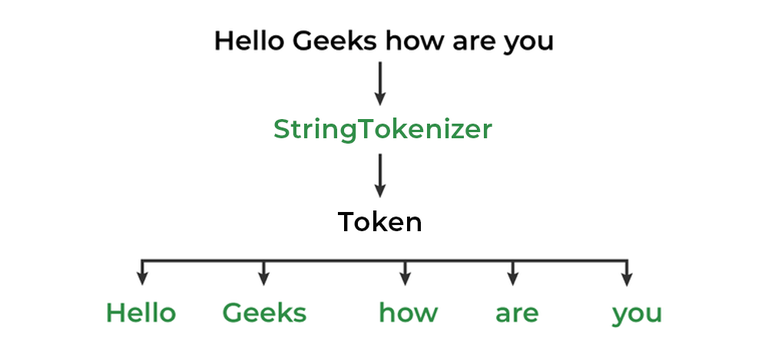Why Are Strings Immutable in Java? Insights into Memory Performance
Why Are Strings Immutable in Java? Insights into Memory Performance
Blog Article
What Is Immutable Strings and Exactly How It Works
In the world of shows, recognizing the concept of unalterable strings is paramount for developing safe and secure and robust applications. Unalterable strings refer to strings that can not be changed after they are produced, making sure data honesty and predictability within the code. This fundamental principle plays a vital duty in different shows languages and uses a special method to taking care of data. By discovering the intricacies of exactly how unalterable strings function, one can discover a globe of advantages and possibilities that can boost the top quality and efficiency of software growth.
The Essentials of Immutable Strings
Unalterable strings, as an essential principle in programming, are character sequences that can not be transformed once they are produced. This means that when a string is assigned a value, that value can not be changed. In languages like Python and Java, strings are unalterable items, bring about different ramifications in regards to memory management and information honesty.
One of the crucial advantages of unalterable strings is that they provide a feeling of security in data control. Since the content of an immutable string can not be customized, it ensures that the initial data continues to be intact, decreasing the risk of unintended modifications during program implementation (Why are strings immutable in Java?). This building also streamlines debugging procedures, as designers can trust that as soon as a string is specified, its worth will certainly not be inadvertently altered
In addition, unalterable strings help with effective memory usage. When a brand-new string is produced based on an existing one, instead of changing the original string, the brand-new value is kept individually. This strategy enhances performance by minimizing memory fragmentation and simplifying memory allotment processes. On the whole, understanding the basics of immutable strings is important for mastering programming principles and enhancing code performance.
Benefits of Immutable Strings
Building upon the protection and efficiency advantages of immutable strings, their benefits reach improving code reliability and streamlining concurrent shows tasks. By being immutable, strings can not be customized after production, which removes the risk of unplanned changes in the data they store. This inherent immutability makes certain that once a string is developed, its value stays constant throughout the program's execution, minimizing the opportunities of insects triggered by unforeseen changes.
Furthermore, immutable strings add to code integrity by making it much easier to reason concerning the state of a program. Since strings can not be altered, designers can rely on that a string will constantly hold the exact same value, simplifying debugging and maintenance initiatives. This predictability causes much more reliable and steady codebases.

Implementation in Shows Languages
Within numerous shows languages, the incorporation of immutable strings is a fundamental element that influences how information is handled click and manipulated within code structures. The execution of unalterable strings varies across different programming languages, with each language offering its own mechanisms to support this idea.

On the other hand, languages like C and C++ do not have built-in assistance for immutable strings. Developers in these languages should manually implement immutability by implementing policies within their code to stop straight adjustments to string objects.
Ideal Practices for Dealing With Immutable Strings
When managing immutable strings in shows languages like Java and Python, sticking to best methods makes certain effective and safe information control. Among the crucial finest methods is to utilize StringBuilder or StringBuffer as opposed to straight manipulating strings, especially when handling considerable concatenation operations. These classes supply mutable alternatives for string manipulation, helping to stay clear of unneeded memory allocations and enhancing efficiency.
In addition, when working with delicate information such as passwords or API keys, it is crucial to stay clear of keeping them as ordinary text in unalterable strings. Utilizing secure storage devices like char ranges or specialized collections for dealing with sensitive information aids alleviate safety risks associated with unalterable strings.
Real-world Applications and Examples
Discovering functional applications of immutable strings in different markets discloses their considerable effect on data stability and system reliability. In the healthcare sector, unalterable strings play an essential role in making certain the safety and confidentiality of client information. By stopping unauthorized alterations to delicate info such as clinical documents and prescriptions, immutable strings assist maintain compliance with strict privacy laws like HIPAA.
Monetary establishments additionally take Home Page advantage of the unalterable nature of strings to improve the security of consumer data and deal records. Unalterable strings assist stop fraudulence and unauthorized alterations to financial information, offering a durable defense against cyber dangers and making certain the trust and confidence of clients.

Final Thought
Finally, immutable strings are taken care of and stable sequences of personalities that provide advantages such as thread safety and enhanced performance in shows. They are carried out in various programs languages to make certain data stability and safety. Ideal techniques for functioning with immutable strings include staying clear of straight alterations and utilizing methods that return brand-new string items. Real-world applications of unalterable strings include information encryption, caching, and string adjustment tasks.
Immutable strings refer to strings that can not be changed after they are developed, guaranteeing information integrity and predictability within the code. When a new string is developed based on an existing one, instead than changing the original string, the new value is saved independently.In languages like Java and Python, strings are immutable by default, indicating that once a string things is developed, its worth can not be transformed - Why are strings immutable in Java?. Ideal practices for functioning with unalterable strings include avoiding direct adjustments and making use of techniques that return brand-new string objects. Real-world applications of unalterable strings include information file encryption, caching, and string adjustment tasks
Report this page